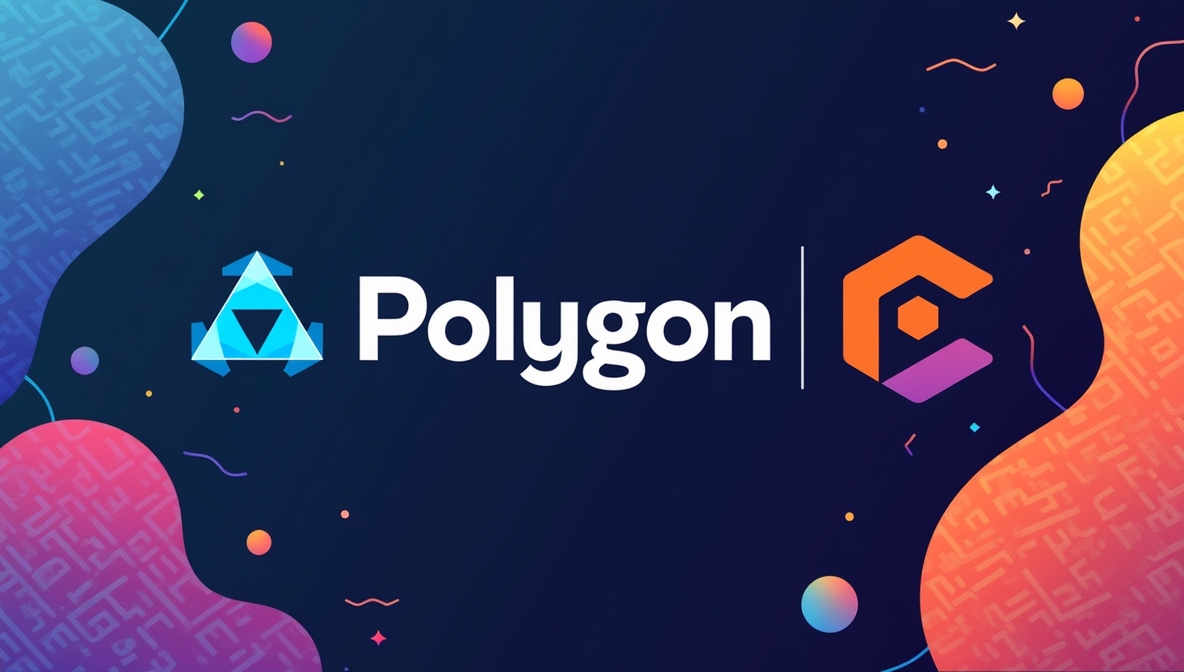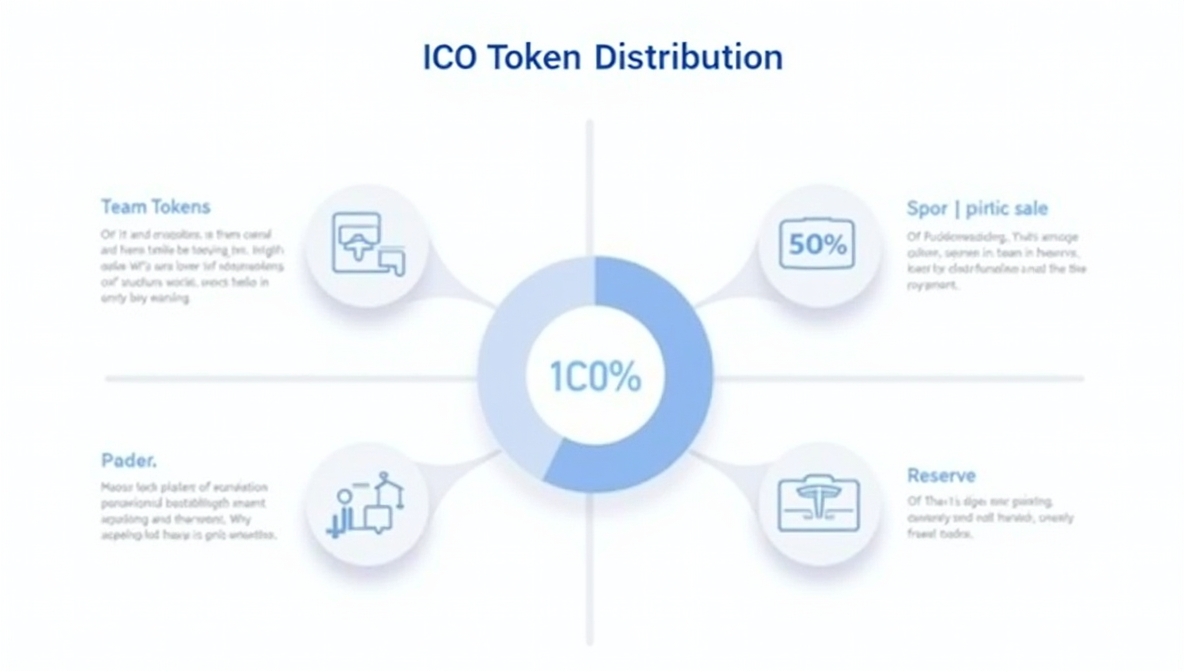Imagine you’re an investor eager to back the next groundbreaking startup. Traditionally, you’d commit a substantial amount of capital to a venture capital (VC) fund, lock it away for years, and patiently wait for returns. Now, you can invest smaller amounts, access your investment more flexibly, and enjoy transparent, real-time insights into your portfolio all facilitated by cutting-edge technology.
Tokenization in venture capital is transforming this vision into reality. By converting traditional fund interests into digital tokens secured by blockchain technology, tokenization offers investors enhanced liquidity, greater control, and streamlined operations without disrupting the established governance structures that have long underpinned the VC industry.
In this comprehensive guide, we’ll demystify tokenization in venture capital, exploring how it works, its benefits, the challenges it presents, and its future trajectory. We’ll also delve into real-world case studies, provide expert insights, and answer unique questions to ensure you gain a thorough understanding of how tokenized venture capital funds are reshaping the investment landscape. Whether you’re an experienced investor, a fund manager, or someone curious about the intersection of blockchain and venture capital, this article will equip you with the knowledge to navigate and leverage this innovative financial frontier.
Understanding Tokenization in Venture Capital
Tokenization in venture capital refers to the process of converting ownership interests or fund units into digital tokens that are recorded and managed on a blockchain. Unlike cryptocurrencies, these tokens are security tokens that represent shares, limited partnership interests, or other forms of ownership within a VC fund. This digital representation streamlines the traditional processes associated with venture capital, making investments more liquid, accessible, and transparent.
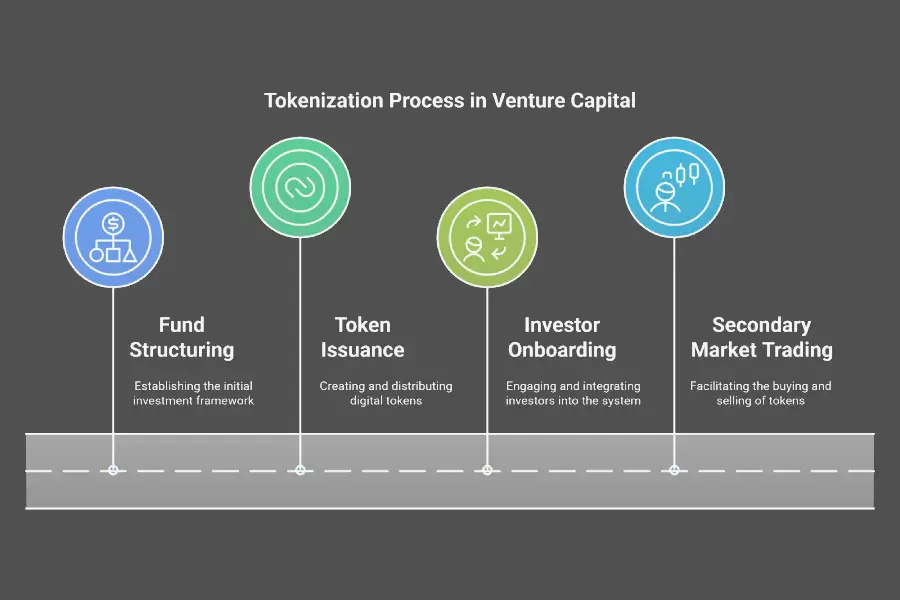
In a traditional VC setup, ownership interests are typically documented through paper certificates or digital records managed by the fund’s administrators. These records can be cumbersome to manage, especially when dealing with multiple investors and complex transactions. Tokenization simplifies this by leveraging blockchain technology to create a secure, immutable ledger of all ownership interests. Each token corresponds to a specific stake in the fund, making it easier to track, transfer, and manage investments.
Read More: Tokenization of Alternative Investments: Unlocking New Opportunities
Traditional Venture Capital vs. Tokenized Venture Capital
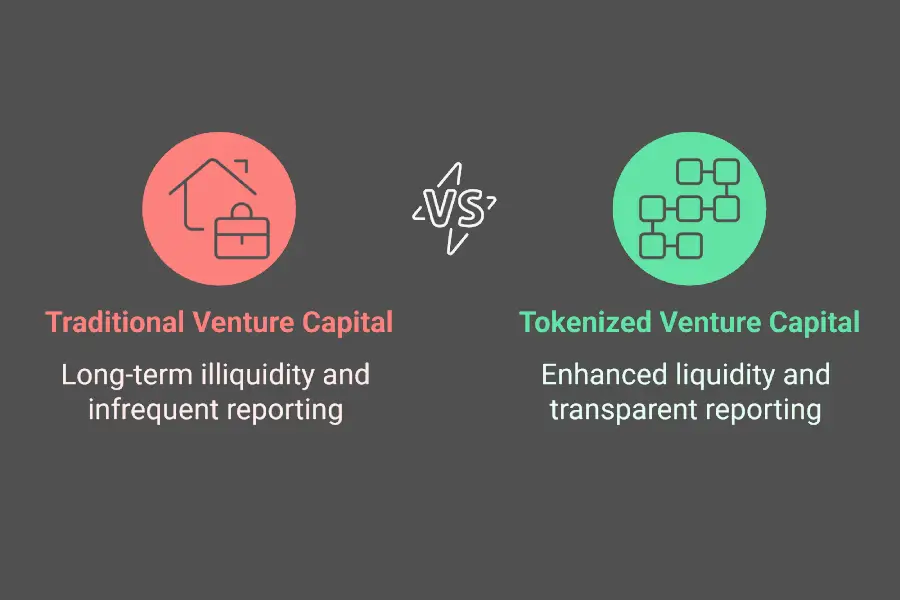
In traditional venture capital, the relationship between General Partners (GPs) and Limited Partners (LPs) is governed by lengthy legal agreements, periodic capital calls, and infrequent reporting. Investments are typically illiquid, requiring LPs to commit their capital for extended periods without the ability to easily exit their positions.
Tokenized venture capital funds, on the other hand, leverage blockchain to enhance these traditional structures. While the fundamental roles of GPs and LPs remain unchanged GPs manage the fund and make investment decisions, while LPs provide the capital the mechanics of ownership, reporting, and liquidity are transformed. Tokenization introduces a new layer of flexibility and efficiency without disrupting the established power dynamics within the fund.
By digitizing ownership interests, tokenized funds can offer LPs more frequent and transparent reporting, automated compliance, and the ability to trade their interests on secondary markets. This not only improves the investor experience but also attracts a more diverse pool of capital, potentially leading to larger and more dynamic funds.
The Role of Blockchain Technology
Blockchain technology is the backbone of tokenization in venture capital. It provides a decentralized, tamper-proof ledger that records every transaction involving the tokens. This ensures transparency and security, as all transactions are visible to authorized participants and cannot be altered once recorded.
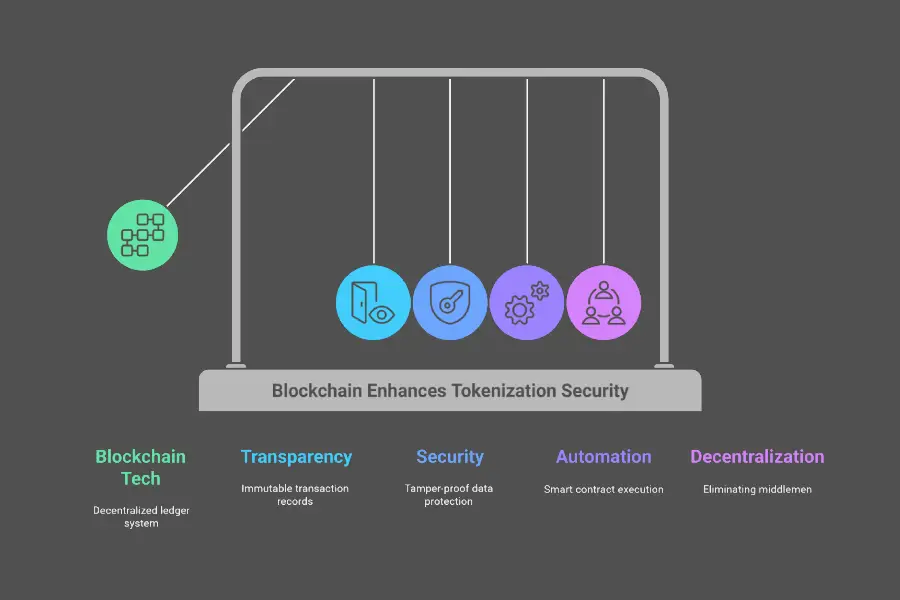
Smart contracts, self-executing contracts with the terms of the agreement directly written into code, play a crucial role in this ecosystem. They automate various processes such as compliance checks, distribution of dividends, and execution of capital calls. This automation reduces the need for intermediaries, minimizes human error, and accelerates transaction times, making the entire investment process more efficient.
Moreover, blockchain facilitates fractional ownership, allowing investors to hold and trade smaller portions of their investments. This democratizes access to venture capital by lowering the barriers to entry, enabling a broader range of investors to participate in high-potential funds.
How Tokenization Works in Venture Capital
Tokenizing a venture capital fund involves several key steps, each leveraging blockchain technology to ensure security, compliance, and efficiency.
- Structuring the Fund for Tokenization: The first step is to structure the venture capital fund in a way that allows for tokenization. This involves working with legal experts to ensure that each token accurately represents a specific ownership interest in the fund and complies with relevant securities laws.
- Issuance of Tokens: Once the fund is structured, tokens are issued to represent the LPs’ stakes. These tokens are created on a blockchain platform using smart contracts, which automate various processes such as compliance checks and distributions.
- Investor Onboarding: Investors undergo KYC (Know Your Customer) and AML (Anti-Money Laundering) checks to verify their eligibility. Upon successful verification, they receive their tokens in a secure digital wallet.
- Secondary Market Trading: After issuance, tokens can be traded on regulated secondary marketplaces. This provides LPs with the ability to buy, sell, or trade their tokens, enhancing liquidity and offering more flexibility in managing their investments.
- Ongoing Management and Reporting: The blockchain ledger continuously records all transactions, providing real-time insights and transparent reporting to investors. Smart contracts can automate distributions, capital calls, and other administrative tasks, reducing the need for manual intervention.
Token Issuance and Smart Contracts
Smart contracts are integral to the tokenization process. These self-executing contracts contain the terms and conditions of the tokenized venture capital fund, automating various functions to ensure seamless operations.
For example, when an LP invests in a tokenized fund, a smart contract can automatically issue the corresponding number of tokens to their digital wallet once the investment is confirmed. Similarly, when profits are distributed, smart contracts can calculate each investor’s share based on their token holdings and distribute the proceeds accordingly.
Smart contracts also enforce compliance rules. They can restrict the transfer of tokens to only eligible investors, ensuring that all trades comply with securities regulations. This automated compliance reduces the risk of human error and ensures that the fund adheres to legal requirements without constant manual oversight.
Legal and Regulatory Compliance
The tokenization of venture capitals is carried out within the framework of existing securities laws. Regulatory bodies such as the U.S. Securities and Exchange Commission (SEC) have provided guidelines for security tokens, ensuring that tokenized funds maintain the same level of investor protection as traditional funds.
Compliance involves several key aspects:
- Accredited Investors: Tokenized funds often require investors to be accredited, meaning they meet specific financial criteria. This ensures that only qualified investors participate, maintaining the integrity of the fund.
- Regulatory Filings: Tokenized funds must comply with all necessary regulatory filings and disclosures. This includes registering the tokens as securities and adhering to reporting requirements.
- Jurisdictional Compliance: Funds must navigate the complexities of operating across different jurisdictions, ensuring that their tokenized offerings comply with local regulations in each region where they operate.
- Legal Agreements: Clear legal agreements are essential to map token ownership to LP rights. These agreements outline the rights and obligations of token holders, ensuring that their interests are protected and clearly defined.
By adhering to these compliance measures, tokenized venture capital funds can offer a secure and regulated investment environment, attracting both traditional and new investors.
Benefits of Tokenization for Venture Capital
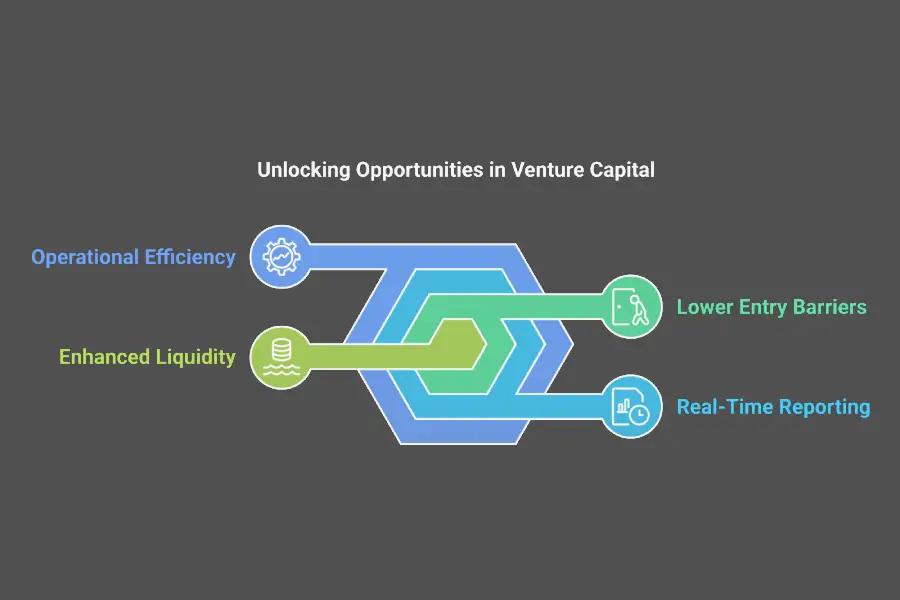
Enhanced Liquidity and Faster Exits
One of the most significant advantages of tokenization in venture capital is the enhanced liquidity it provides. Traditional VC investments are notoriously illiquid, with LPs typically committing their capital for long periods often 7 to 10 years without the ability to easily exit their positions. This illiquidity can be a major deterrent for potential investors who seek more flexibility.
Tokenization addresses this issue by enabling the trading of ownership interests on secondary markets. LPs can sell their tokens to other accredited investors, providing a way to liquidate their investments without waiting for the fund to reach its exit events. This increased liquidity makes venture capital more attractive to a broader range of investors, including those who might have previously been hesitant due to the long lock-up periods.
Research by the World Economic Forum and Deloitte suggests that tokenization could unlock trillions in previously inaccessible capital by making it easier to buy and sell private market assets. For venture capital, this means more dynamic investment strategies and the potential for quicker capital recycling, allowing funds to seize new opportunities without being hindered by liquidity constraints.
Moreover, the ability to exit investments more flexibly can enhance investor confidence. Knowing that they can access their capital if needed encourages more participation and commitment to venture capital funds, potentially leading to larger and more robust investment pools.
Increased Accessibility
Tokenization is better described as increased accessibility, as it lowers entry barriers for investors in venture capital funds. Traditionally, significant capital commitments limited participation to institutional investors and high-net-worth individuals. Now, tokenization allows investments in fractional shares, enabling smaller accredited investors and potentially some non-accredited investors to access high-potential VC opportunities.
For instance, a tokenized venture capital fund might allow investments starting at $1,000 instead of the traditional $250,000 minimum. This reduction broadens the investor base, bringing in diverse perspectives and fostering a more inclusive investment environment. Additionally, tokenization enables global participation, allowing investors worldwide to invest in funds without extensive legal arrangements, thus tapping into diverse capital sources for startups with international ambitions.
Operational Efficiencies and Cost Reductions
Tokenizing venture capital significantly enhances operational efficiencies and reduces costs through automation and streamlined processes. Traditional venture capital operations involve extensive paperwork, manual reconciliation, and repetitive administrative tasks that are time-consuming and prone to errors.
Blockchain technology and smart contracts greatly streamline various processes in investment management. Investor onboarding can be automated through KYC/AML checks, allowing verified investors to receive tokens without manual data entry. Smart contracts also handle fund distributions and capital calls automatically, ensuring timely and accurate transactions based on token holdings.
Moreover, blockchain’s transparent ledger offers real-time visibility into fund performance, enabling investors to access current data without waiting for periodic reports. This transparency enhances trust and reduces the administrative load on fund managers, allowing them to concentrate on strategic initiatives.
Overall, these operational efficiencies lead to significant cost savings by minimizing reliance on intermediaries and reducing administrative tasks. These savings can either lower management fees for investors or be reinvested to improve overall returns.
Transforming Traditional Constraints
Tokenization in venture capital is not just about enhancing existing processes; it’s about transforming traditional constraints that have long limited the industry’s growth and flexibility.
Flexibility in Fund Structures
Traditional venture capital funds operate within rigid structures, with predefined investment periods and exit timelines. Tokenization introduces flexibility by allowing more dynamic fund structures. For instance, funds can offer periodic liquidity windows where investors can trade their tokens, providing a way to manage their investments without waiting for the fund’s lifecycle to conclude.
This flexibility can also influence how funds are structured in terms of capital commitments and distributions. Smart contracts can facilitate dynamic capital calls, where funds can request capital based on real-time needs rather than fixed schedules. This agility enables funds to respond more quickly to market opportunities, ensuring that capital is deployed efficiently and effectively.
Enhanced Capital Allocation
With tokenization, venture capital funds can achieve more precise and transparent capital allocation. Blockchain’s immutable ledger provides a clear record of all transactions, ensuring that capital flows are tracked accurately. This transparency helps in identifying where funds are being allocated, monitoring investment performance, and ensuring that capital is used as intended.
Additionally, the ability to fractionalize investments means that funds can diversify more effectively. By issuing tokens for different investment opportunities, funds can allocate capital to multiple startups simultaneously, spreading risk and enhancing potential returns. This diversification is easier to manage and track through a tokenized system, providing better oversight and control over the investment portfolio.
Improved Investor Relations
Tokenization fosters improved relationships between fund managers and investors. The real-time transparency and accessibility provided by blockchain technology enhance communication and trust. Investors can monitor their investments continuously, access detailed performance metrics, and engage with fund managers more directly.
Moreover, the automated processes enabled by smart contracts reduce administrative friction, allowing fund managers to focus more on building relationships and supporting portfolio companies. This enhanced focus on value creation strengthens investor relations and can lead to increased investor satisfaction and retention.
Challenges and Considerations
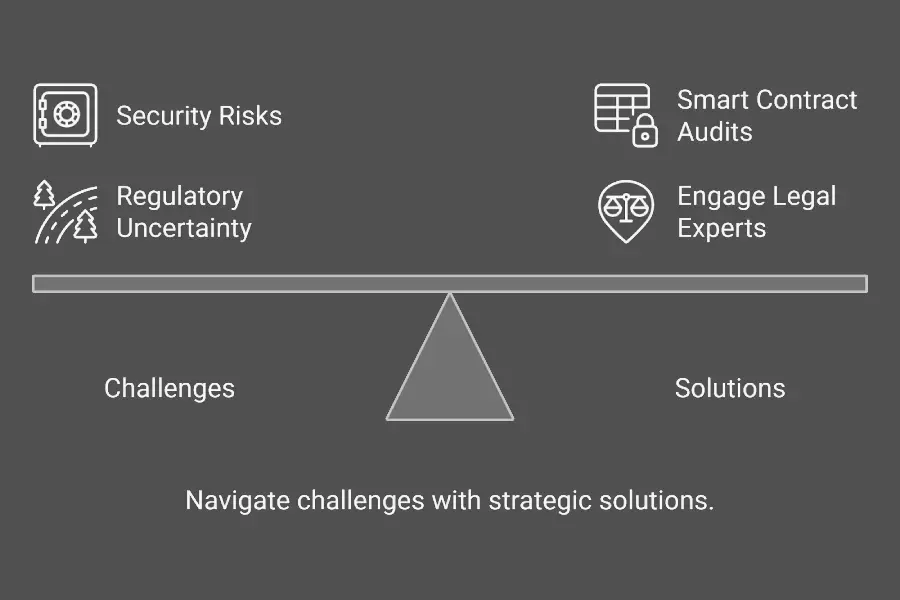
Regulatory Hurdles
While tokenization offers numerous benefits, it operates within a complex and evolving regulatory landscape. Different jurisdictions have varying rules and regulations governing security tokens, making cross-border operations particularly challenging.
In the United States, the SEC has provided guidelines that classify security tokens under existing securities laws. This means that tokenized venture capital funds must comply with regulations such as the Securities Act of 1933 and the Securities Exchange Act of 1934. Compliance involves registering the tokens as securities or qualifying for exemptions, which requires meticulous legal structuring and ongoing regulatory adherence.
In Europe, the regulatory environment is also evolving. The European Securities and Markets Authority (ESMA) has issued guidelines that treat security tokens similarly to traditional securities, necessitating compliance with MiFID II and other relevant regulations. Each country within Europe may have additional specific requirements, adding another layer of complexity.
Asia presents a diverse regulatory landscape. Countries like Singapore have been more progressive, with the Monetary Authority of Singapore (MAS) providing clear frameworks for digital token offerings. However, other countries may have stricter or less defined regulations, requiring fund managers to navigate a patchwork of rules.
Key Considerations for Regulatory Compliance:
- Legal Structuring: Ensuring that each token accurately represents a specific ownership interest and complies with local securities laws.
- Cross-Border Compliance: Navigating the differing regulatory requirements of each jurisdiction where the fund operates or where investors reside.
- Ongoing Adaptation: Staying abreast of regulatory changes and adapting tokenization practices accordingly to maintain compliance.
- Consulting Legal Experts: Engaging with legal professionals who specialize in digital assets and securities law to navigate the complexities effectively.
Security Concerns and Technological Risks
Blockchain technology, while robust, is not immune to security vulnerabilities. Smart contracts, if not properly coded and audited, can contain bugs that expose funds to potential exploits. High-profile hacks and security breaches in the cryptocurrency space have underscored the importance of robust security measures.
Key Security Concerns:
- Smart Contract Vulnerabilities: Errors in smart contract code can lead to unintended behaviors, such as unauthorized token transfers or locked funds.
- Custody Solutions: Secure storage of tokens is paramount. Custody solutions must protect against hacking, theft, and loss, ensuring that investors’ digital assets remain safe.
- Platform Security: The security of the blockchain platform itself is crucial. Ensuring that the platform is resilient against attacks and has a proven track record is essential for maintaining trust.
- Regular Audits: Conducting regular security audits of smart contracts and blockchain infrastructure to identify and mitigate vulnerabilities.
To mitigate these risks, venture capital funds should:
- Choose Reputable Platforms: Partner with well-established blockchain platforms that prioritize security and have a history of reliable performance.
- Conduct Thorough Audits: Engage third-party security firms to audit smart contracts and blockchain infrastructure regularly.
- Implement Robust Custody Solutions: Utilize secure, regulated custody services to protect digital assets from theft and loss.
- Stay Informed on Best Practices: Continuously educate themselves on the latest security practices and technological advancements to enhance their security posture.
Market Acceptance and Investor Education
Another significant challenge is market acceptance. Traditional investors may be unfamiliar with blockchain technology and hesitant to embrace tokenization due to its association with volatile cryptocurrencies. Overcoming this skepticism requires comprehensive education and transparent communication.
Strategies to Enhance Market Acceptance:
- Clear Communication: Clearly articulate the differences between tokenization in venture capital and cryptocurrencies. Emphasize the security, regulatory compliance, and tangible benefits of tokenized funds.
- Showcasing Success Stories: Highlight successful tokenized venture capital funds and their positive outcomes to build credibility and demonstrate real-world viability.
- Educational Resources: Provide investors with accessible resources that explain the tokenization process, its benefits, and how it integrates with traditional venture capital structures.
- Building Trust: Partner with reputable institutions and leverage endorsements from trusted industry leaders to enhance credibility and trust among potential investors.
Educating investors not only involves explaining the technical aspects of tokenization but also addressing their concerns about security, compliance, and the preservation of their investment rights. Transparent communication and a focus on the investor experience are crucial in driving market acceptance and fostering a positive perception of tokenized venture capital funds.
Applications of Tokenization in Venture Capital
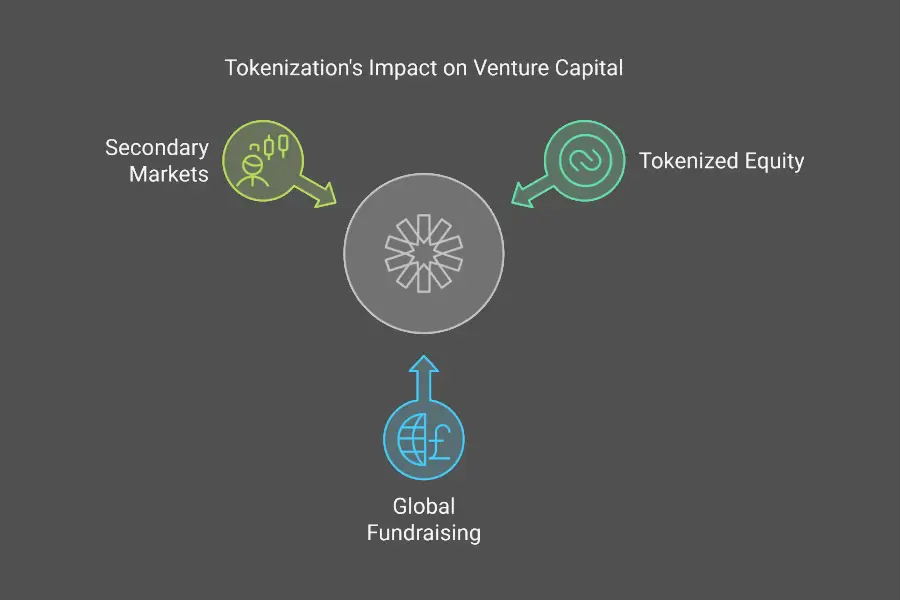
Tokenization of Startup Equity
Startups often navigate complex cap tables, multiple rounds of funding, and intricate shareholder agreements. Tokenization simplifies these processes by representing equity shares as digital tokens on a blockchain. This digital representation enhances transparency and efficiency, making it easier to manage ownership stakes and track changes in real-time.
For example, a startup can issue tokens to represent shares, allowing investors to hold and trade these tokens directly. This approach reduces the need for cumbersome paperwork and manual record-keeping, streamlining the entire equity management process. Additionally, tokenization facilitates easier updates to cap tables, ensuring that all stakeholders have access to accurate and up-to-date ownership information.
Blockchain Capital’s BCAP token is a prime example of how tokenization can revolutionize startup equity management. By issuing tokens that represent their fund’s interests, Blockchain Capital was able to provide investors with a transparent and efficient way to manage their investments. This not only improved operational efficiency but also enhanced investor confidence by providing real-time visibility into their holdings.
Raising Funds Through Tokenized Assets
Raising capital for a venture capital fund traditionally involves extensive networking, multiple rounds of negotiations, and significant administrative overhead. Tokenization streamlines this process by enabling funds to issue tokens that represent ownership interests, allowing for a more seamless and efficient fundraising experience.
Moreover, tokenization enables fractional investments, allowing investors to commit smaller amounts of capital while still gaining exposure to the fund’s portfolio. This democratizes access to venture capital, making it possible for a broader range of investors to participate and contribute to the fund’s success.
Secondary Markets for Trading VC Tokens
One of the most transformative applications of tokenization is the creation of secondary markets for trading venture capital tokens. These regulated platforms enable investors to buy and sell their tokenized interests, providing unprecedented liquidity in an otherwise illiquid asset class.
Imagine an investor who committed capital to a venture capital fund a few years ago but now needs to access some of that capital for personal reasons. Instead of waiting for the fund to reach its exit events, the investor can sell a portion of their tokens on a secondary marketplace. This process is facilitated by smart contracts that ensure compliance with securities regulations, automatically verifying the eligibility of buyers and executing the transfer securely.
Secondary markets not only benefit individual investors by providing liquidity but also enhance the overall attractiveness of venture capital funds. Knowing that there are avenues for liquidity can encourage more investors to commit capital, knowing they have the option to exit their positions if needed. This increased liquidity can lead to higher demand for tokenized funds, driving up capital inflows and potentially leading to larger and more impactful investment funds.
A 2021 study by INX highlighted the growing interest in security token exchanges, noting a steady increase in participants and transaction volumes. As these secondary markets mature, they will play a crucial role in normalizing the trading of venture capital tokens, making tokenized funds a standard offering in the investment landscape.
Case Studies and Real-World Examples
Blockchain Capital (BCAP): Pioneering Tokenized Venture Capital Funds
Blockchain Capital stands out as one of the first venture capital firms to experiment with tokenization. In 2017, Blockchain Capital launched the BCAP token, representing shares in their venture capital fund. This pioneering effort aimed to blend the traditional venture capital model with the emerging blockchain technology to enhance liquidity and transparency.
The BCAP Journey:
When Blockchain Capital introduced BCAP tokens, they faced significant skepticism. The venture capital industry was predominantly traditional, with established practices and a cautious approach to adopting new technologies. The primary challenge was convincing investors that tokenization could offer real benefits without compromising the fund’s integrity or regulatory compliance.
To address these concerns, Blockchain Capital partnered with reputable security token platforms and legal advisors to ensure full compliance with securities laws. They conducted thorough KYC/AML checks and implemented robust security measures to protect investors’ digital assets. The issuance process was transparent, with clear communication about how the tokens represented ownership interests and the rights associated with them.
Outcomes and Lessons Learned:
The introduction of BCAP tokens demonstrated that tokenization could work within the traditional VC framework. Investors appreciated the enhanced liquidity options and the ability to trade their interests on secondary markets. While the initial market volumes were modest, the success of BCAP laid the groundwork for future tokenized funds by proving that such models could attract a global investor base and streamline operational processes.
The BCAP case highlighted the importance of regulatory compliance, transparent communication, and collaboration with experienced partners in successfully tokenizing a venture capital fund. It showcased how tokenization could enhance investor experience without disrupting the core management structure of the fund.
Spice VC: Enhancing Accessibility and Operational Efficiency
Spice VC, launched in 2018, took the concept of tokenized venture capital funds a step further by focusing on accessibility and operational efficiency. Their approach aimed to make private investments more accessible to a broader range of investors while maintaining high standards of professionalism and compliance.
Spice VC’s Tokenization Strategy:
Spice VC utilized blockchain technology to issue tokens representing limited partnership interests in their fund. This tokenization allowed for fractional investments, enabling smaller accredited investors and family offices to participate in their venture capital offerings. The onboarding process was streamlined through automated KYC/AML checks, allowing investors to receive their tokens quickly and efficiently.
Operational Enhancements:
By leveraging smart contracts, Spice VC automated various administrative tasks, including capital calls and profit distributions. This automation reduced the need for manual intervention, minimized errors, and accelerated the entire investment process. Investors could track their investments in real-time through a blockchain-based dashboard, providing them with transparent and up-to-date information on fund performance and individual holdings.
Building Trust and Overcoming Skepticism:
Spice VC addressed initial concerns about token trading on secondary markets by partnering with well-regulated exchanges. They ensured that all token transactions adhered to strict compliance standards, thereby protecting investors and maintaining the fund’s integrity. This commitment to security and compliance helped build trust among investors, gradually overcoming skepticism and establishing Spice VC as a reliable player in the tokenized venture capital space.
Results and Impact:
Spice VC’s tokenized fund attracted a diverse and global investor base, benefiting from the increased accessibility and operational efficiencies provided by tokenization. The ability to offer partial liquidity and transparent reporting enhanced investor satisfaction and confidence. Spice VC’s success demonstrated that tokenization could not only streamline operations but also expand the investor pool, driving growth and innovation within the venture capital ecosystem.
Future Trends in Venture Capital Tokenization
As tokenization in venture capital continues to gain traction, several emerging innovations are poised to further enhance its impact and functionality.
Advanced Compliance Tools: The development of more sophisticated compliance tools will simplify the regulatory aspects of tokenization. These tools can automate complex compliance tasks, ensuring that tokenized funds adhere to ever-evolving securities laws. Features like real-time regulatory updates and automated reporting will make it easier for funds to maintain compliance across multiple jurisdictions.
Improved Custody Solutions: Secure custody solutions are critical for the safe storage of tokens. Innovations in multi-signature wallets, cold storage, and decentralized custody models will provide enhanced security for tokenized venture capital funds. These advancements will protect against hacks, theft, and loss, ensuring that investors’ digital assets remain secure.
Integration with Decentralized Finance (DeFi): The intersection of tokenization and DeFi offers exciting possibilities for venture capital. By integrating with DeFi protocols, tokenized funds can access automated liquidity pools, yield farming opportunities, and decentralized lending platforms. This integration can create new revenue streams and risk management strategies, enhancing the overall performance and resilience of venture capital funds.
Enhanced Identity Management: Innovations in identity management, such as zero-knowledge proofs and decentralized identity solutions, will enable more secure and privacy-preserving investor verification processes. These technologies allow investors to prove their eligibility without revealing unnecessary personal information, balancing compliance with privacy concerns.
Impact on the VC Landscape
The widespread adoption of tokenization is set to bring significant changes to the venture capital landscape, influencing both fund structures and investor expectations.
Shift in LP Expectations: As tokenization becomes more prevalent, LPs will begin to expect liquidity features and real-time reporting as standard offerings from venture capital funds. This shift will push fund managers to adopt tokenized structures to remain competitive and meet the evolving demands of their investors.
Changes in Capital Deployment and Monitoring: Tokenization enables more agile capital deployment, allowing funds to respond swiftly to emerging opportunities. Real-time tracking and transparent reporting facilitated by blockchain technology will enhance fund managers’ ability to monitor investments and make informed decisions.
Broader Capital Access and Diversity: With lower entry barriers and global accessibility, tokenization will attract a more diverse pool of capital to venture capital funds. This diversity can lead to more innovative and impactful investments, as funds can tap into varied perspectives and expertise from a broader range of investors.
Evolution of Fund Management Practices: Traditional fund management practices will evolve to incorporate digital tools and blockchain-based solutions. This evolution will lead to more efficient operations, reduced administrative burdens, and enhanced collaboration between fund managers and investors.
Long-Term Shifts and Speculations
Looking further ahead, tokenization could drive long-term shifts in how venture capital funds are structured, managed, and traded.
Decentralized Fund Management: While the GP/LP hierarchy is likely to remain, tokenization could facilitate more decentralized management practices. Smart contracts could automate many management functions, allowing for more distributed decision-making and governance.
Integration with AI and Machine Learning: The combination of blockchain and artificial intelligence could revolutionize venture capital. AI-driven analytics could provide deeper insights into investment opportunities, while blockchain ensures data integrity and transparency. This integration could enhance due diligence, portfolio management, and performance forecasting.
Read More: Tokenization in Capital Markets: Unlocking a $16 Trillion Revolution
Global Standardization of Tokenization Practices: As tokenization matures, we can anticipate the emergence of global standards and best practices. These standards will streamline cross-border investments, reduce regulatory complexities, and promote interoperability between different blockchain platforms and tokenized funds.
Increased Institutional Adoption: Institutional investors, including pension funds, endowments, and sovereign wealth funds, may increasingly adopt tokenized venture capital funds. This adoption will bring substantial capital inflows, driving further innovation and growth within the tokenized VC ecosystem.
Tokenova: Expertise in Venture Capital Tokenization
Tokenova specializes in facilitating the transition to tokenized venture capital, offering a comprehensive suite of services designed to enhance efficiency, liquidity, and compliance.
Core Offerings:
- Regulatory Structuring: Craft legally sound frameworks to align with global securities laws.
- Blockchain Solutions: Implement secure token issuance on reliable platforms for seamless operations.
- Investor Onboarding: Simplify and streamline KYC/AML processes for swift participation.
- Data Transparency: Deliver advanced reporting tools for real-time insights and performance tracking.
- Market Connectivity: Enable access to secondary trading platforms, unlocking liquidity for investors.
With a focus on tailored solutions, Tokenova empowers funds to innovate, optimize processes, and achieve a competitive edge in the evolving venture capital landscape.
Conclusion
Tokenization in venture capital marks the beginning of a transformative era, where access, liquidity, and transparency become integral components of the investment process. By converting LP interests into digital tokens, tokenization enhances reporting, reduces administrative burdens, and provides investors with more flexible exit options. This innovative approach retains the core GP/LP structure, ensuring that General Partners continue to manage the fund effectively while Limited Partners enjoy a more efficient and dynamic investment experience.
The success stories of tokenized venture capital funds like Blockchain Capital’s BCAP and Spice VC illustrate that tokenization is not merely a theoretical concept but a practical, impactful reality. These pioneering efforts demonstrate how tokenization can attract a global investor base, streamline operations, and enhance investor confidence through increased liquidity and transparency.
However, the journey towards widespread adoption of tokenization in venture capital is not without its challenges. Regulatory complexities, security concerns, and the need for comprehensive investor education must be carefully navigated. Fund managers must collaborate with legal experts, adopt robust security measures, and communicate transparently with investors to build trust and ensure compliance.
As the ecosystem matures, tokenization is poised to become a standard feature in venture capital, driven by ongoing innovations in blockchain technology and evolving regulatory landscapes. The future of venture capital will likely be more accessible, liquid, and data-driven, aligning more closely with the modern investor’s expectations and needs.
If you’re intrigued by the potential of tokenization in venture capital, your next steps could involve exploring emerging tokenization platforms, staying updated on regulatory developments, and consulting with experts to assess how tokenization can enhance your investment strategy. Embrace this evolution, and position yourself at the forefront of the venture capital industry’s digital transformation.
Key Takeaways
- Tokenization in Venture Capital digitizes ownership interests, enabling greater liquidity, transparency, and operational efficiency while preserving the GP/LP structure.
- Tokenized Venture Capital Funds reduce administrative burdens, lower investment minimums, and make exit options more flexible, appealing to a broader investor base.
- Blockchain in Venture Capital offers automated compliance, streamlined reporting, and secondary markets where investors can trade their stakes more freely.
- Real-World Successes like Blockchain Capital’s BCAP and Spice VC demonstrate the viability and benefits of tokenized venture capital funds.
- Future Trends include advanced compliance tools, improved custody solutions, integration with DeFi, and increased institutional adoption, shaping a more accessible and efficient venture capital ecosystem.
Can tokenization simplify tax reporting for investors in venture capital funds?
Yes. While tokenization doesn’t eliminate the complexity of tax laws, it can significantly simplify tax reporting for investors. By recording all transactions on an immutable blockchain ledger, tokenized funds provide a clear and accurate history of investments, trades, and distributions. This comprehensive record-keeping makes it easier for investors to track their capital gains, losses, and income streams. Additionally, automated reporting tools integrated with tokenized platforms can generate detailed tax reports, reducing the burden on investors and minimizing the risk of errors during tax filing.
Could tokenization enable partial liquidation of a specific investment rather than selling the entire stake?
Absolutely. One of the key advantages of tokenization is the ability to fractionalize ownership, allowing investors to sell or liquidate portions of their holdings without having to exit their entire investment. This flexibility enables investors to manage their portfolios more strategically, adjusting their exposure to different funds or assets based on their financial needs and investment goals. Partial liquidation can help investors optimize their portfolios, rebalance their assets, and respond to changing market conditions without disrupting their overall investment strategy.
Does tokenization affect the typical due diligence process before investing in a VC fund?
The core due diligence process evaluating the fund’s track record, team, strategy, and market potential remains fundamentally the same. However, tokenization introduces additional considerations that investors should assess. These include evaluating the security measures in place for token issuance and custody, understanding the smart contracts governing the tokens, and ensuring that the tokenization platform complies with relevant regulations. Investors should also assess the transparency and accessibility of reporting tools provided by tokenized funds, as these can enhance their ability to monitor investments and make informed decisions. Essentially, while the traditional due diligence criteria remain critical, the checklist expands to include digital asset considerations and the robustness of the tokenization framework.






